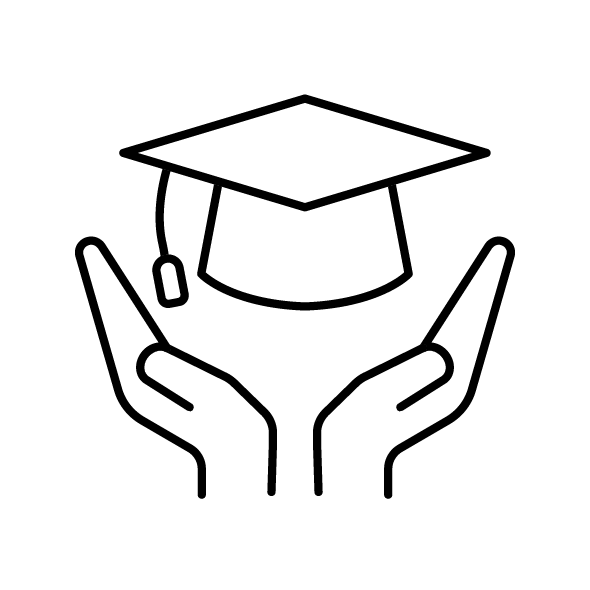Additional Resources
QI Scholars Request for Applications (RFA)
Seattle Children's QI Scholars Website (includes application link)
For assistance with clinical data consultation and data extraction, please contact ARC (AID/DOM Research Collaboratory) at UW Medicine. ARC supports research and quality improvement projects by providing guidance on data sources, study design, clinical phenotyping, analytic methods, and extraction of data from UW’s enterprise data platforms, including DAWG. ARC can also advise on appropriate use of Epic tools (e.g., SlicerDicer, Reporting Workbench, Clarity/Caboodle) to support project needs.
Overview
The QI Scholars Program is a year-long training program designed to support individuals seeking advanced training in QI research methods and leadership skills. Scholars receive dedicated mentorship, data and statistics support, and engage with nationally known improvement experts and a community of peers engaged in rigorous QI projects. Scholars receive training to pursue careers in academic quality improvement while building operational leadership skills. Graduates of the program are capable of leading, publishing, and mentoring others engaged in quality-focused projects.
Key Details
- WHO: Designed for junior and mid-level faculty pursuing QI as a scholarly focus.
- WHAT: A year-long competitive, advanced training program centered around completing and publishing a rigorous QI research project; Scholars receive one-on-one mentoring from QI research experts, data analytic and statistical support; Attend monthly seminars covering QI research methods and leadership skills; Earn up to 45 AMA PRA Category 1 Credit™ and a Certificate of Excellence in QI Scholarship.
- COST: $8,000 from the Division/Department from which the Scholar originates. Scholar's Division/Department must also commit to release from clinical responsibilities to complete program requirements (approximately 5% release time)
Key Dates
| Applications Due | Thursday, July 31, 2025 by 5pm PT |
| Announcement of Awards | August 2025 |
| First Meeting for Scholars | October 15, 2025 |
| Program End | September 30, 2026 |
Program Components
Research Project
Scholars are expected to complete a QI research project and submit a first-authored manuscript after program participation. Scholars may apply with QI projects at any stage of development, but most successful applicants have projects that are already underway at the start of the Program. Scholars receive project mentorship from an academic research coach and are required to meet at least monthly to refine project design, identify resource needs, interpret data, and draft a manuscript. Scholars have access to a data and analytics resource who assists with data acquisition/cleaning and analysis. Scholars are eligible for an additional 12-month project extension to support ongoing statistical or data needs.
Monthly Seminars
Scholars are exposed to state-of-the-art QI research methods and leadership skills during 12 monthly, in-person seminars. The morning seminars are a blend of didactics, small group exercises, and practical hands-on applications. The seminars are led by both internal and external experts in the field of QI science. Seminar attendance is required. The monthly in-person sessions are structured as follows:
8:30am - 9:00am: Breakfast (optional)
9:00am - 12:00pm: Interactive didactic seminar
12:00pm - 1:00pm: Lunch and break
1:00pm - 3:00pm: Work in Progress and/or guided project work time
Presentations and Work-In-Progress (WIP) Sessions
All program faculty (Scholars, mentors, data analysts, statisticians) meet regularly for work-in-progress sessions. Scholars present at a WIP Session at least twice during Program participation. These presentations serve as an excellent opportunity to address project barriers with the larger group and active participation and engagement is expected.
Eligibility
Applicants must hold a University of Washington School of Medicine faculty appointment at the time QI Scholars funding will begin. Preference is given to junior to mid-level faculty in the UW Medicine system with a demonstrated focus on QI.
Strong applicants will have a QI project that is planned or already implemented prior to the program start date of October 2025, and is aligned with UW Medicine priorities:
- Improving patient care outcomes
- Increasing patient care efficiency
- Enhancing patient and family experience of care
- Promoting communication with patients and families or between clinicians
- Strengthening equity, diversity, and inclusion
- Supporting the care delivery process
- Innovations in care delivery using AI or robotic process automation
Requirements
All QI Scholars are expected to successfully complete a rigorous QI research project with the support of a mentorship team.
In addition to implementing the improvement project, QI Scholars are required to attend the following:
- 12 monthly seminars
- Regular meetings with the Scholar’s assigned mentor, statistician, and data analyst
- Works-in-progress meetings
This is estimated at 5% FTE. At the completion of their project, QI Scholars are supported in publishing their work in a peer-reviewed journal.
tuition
Tuition for QI Scholars is funded jointly by the Division/Department from which the selected Scholar originates and the hospital at which the project takes place. Applicants must work with their Division/Department to secure $8,000 in tuition funding and release from clinical responsibilities to complete Program requirements, approximately 5% protected effort.
Hospitals where selected projects will occur also cover programmatic costs of $7,000 per project beyond the $8,000 contributed by the Scholar's Division/Department to meet programmatic costs.
Please read the Request for Applications before applying.
Please note that external applicants (outside Seattle Children's Hospital and UW Medicine) have a different application process. Read more about the external applicant process here.
Selection Process
A selection committee comprised of senior quality and safety leaders at UW Medicine and QI Scholars faculty will select the Scholars through a competitive application process. Each application will be reviewed and independently scored by at least 3 reviewers. Consideration will be given to the career development goals of the applicant, the feasibility and focus of the proposed QI project, as well as alignment with organizational priorities. All applicants will receive written feedback on their proposals.
Program History
Seattle Children’s Hospital started the QI Scholars Program in 2016 and has been providing this advanced training to junior and mid-level faculty for 6 years. In 2021, for the first time, the QI Scholars Program expanded to include a cohort of UW Medicine participants along with the Seattle Children’s cohort, creating a cross-fertilization of ideas and innovation.
The University of Washington School of Medicine is accredited by the Accreditation Council for Continuing Medical Education to provide continuing medical education for physicians.
The University of Washington School of Medicine designates this live activity for a maximum of 45 AMA PRA Category 1 Credits™. Physicians should claim only the credit commensurate with the extent of their participation in the activity. (Each session is worth 3.75 credits)




